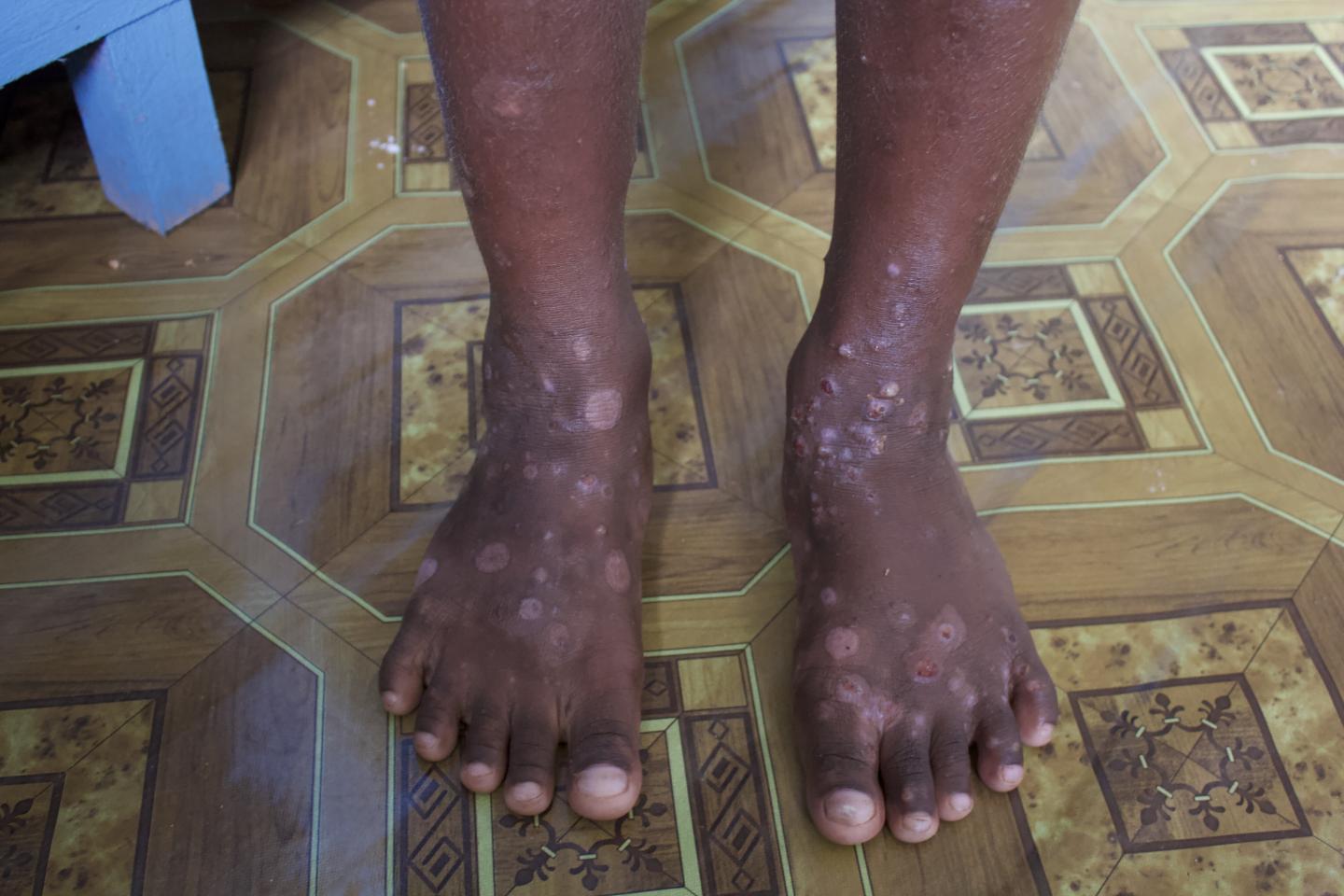The public health control of scabies: priorities for research and action

Credit: Dr Millicent Osti, MCRI
An alignment of researchers, health ministries and the World Health Organization has outlined the key steps to develop a global program to control scabies – the parasitic disease that affects 450 million people each year in mainly low-income countries.
The research paper, ‘The public health control of scabies: priorities for research and action’ published in The Lancet journal was led by Australia’s Murdoch Children’s Research Institute, in collaboration with the International Alliance for the Control of Scabies, the World Health Organization, international researchers and the Ministries of Health of Ethiopia, Solomon Islands and Fiji.
Lead author, MCRI’s Daniel Engelman, said global scabies control was dependent on developing key operational procedures, including methods for identifying scabies prevalence in all impacted countries.
“Scabies is a disease of poverty, and people in low-income, crowded, and warm environments are most vulnerable to infestation caused by the microscopic Sarcoptes scabiei mite,” Dr Engelman said.
“Scabies causes skin rash and severe itch that can be unbearable, but there is no blood-test, and not even a standardised approach to diagnosis. We don’t know how prevalent scabies is in most countries. ”
Dr Engelman said that a major priority was mapping the global scabies problem using simple skin examinations, which can be conducted by nurses and community health workers.
Dr Mike Kama, public health expert and scabies focal person at the Fiji Ministry of Health, said scabies infection rates could now be radically decreased by treating whole populations with an antiparasitic medication called ivermectin, after previous successful trials of the drug in Fiji.
“Scientific advances over the past five years suggest that the number of people with scabies in a community can be reduced by more than 90 per cent with a single mass treatment” he said. “This is one of the most effective public health interventions we have.”
Dr Paul Cantey, Medical Officer for Scabies from the World Health Organization in Geneva, said more work is required to identify when mass treatments for scabies are needed, how best to implement them, and how to engage communities to ensure scabies control initiatives are sustainable.
“During studies of mass treatment for scabies, young children were not given ivermectin but treated with topical medicines, which can make treatment of affected communities more complicated. This paper highlights the need to determine if oral scabies medicines can be safely given to young children,” Dr Cantey said.
The research found scabies infection rates were high in many Pacific nations, parts of South America and Africa, and in Australian, New Zealand and Canadian indigenous communities, where up to 50 per cent of children may have scabies.
Senior author, MCRI’s Professor Andrew Steer, said the scabies mite causes ‘traumatic itching’ when the surface of the skin is broken, allowing bacteria to enter.
“This can lead to impetigo (school sores), and if the wound becomes infected with the Strep A or Staph bacteria, the sufferer can develop severe, life-threatening infections, as well as chronic health issues such as rheumatic heart disease or chronic kidney disease,” Prof Steer said.
More than 300,000 people die from rheumatic heart disease around the world every year. Prof Steer said that there was the potential to reduce the burden of rheumatic heart disease by controlling scabies and maintaining healthy skin.
The 24 authors of the paper called for a global strategy to tackle scabies and outlined five key steps:
- Develop a global strategy for the public health control of scabies
- Map the global population affected by scabies.
- Facilitate affordable and reliable access to effective treatments
- Scale-up mass drug administration strategies in highly-affected countries.
- Work together with affected communities and health programs
###
Available for interview:
Dr Daniel Engelman
Media Contacts:
Christine Tondorf
MCRI communications advisor
+613 9936 6197 / +61413 307 092
[email protected]
Bridie Byrne
MCRI communications specialist
+613 9936 6211 / +61 403 664 416
[email protected]
Media Contact
Christine Tondorf
[email protected]
Related Journal Article
http://dx.




